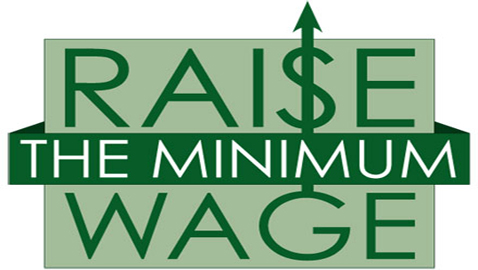Raising Minimum Wage Is A Moral And Practical Imperative: Else We Condemn Future Generations To A Lifetime Of Poverty
Post Views 2
The present condition of the poverty-ridden is not as worrying as the fact that there is little hope on the horizon of things improving. It is a challenge that the government must address, if things are going to improve. The gap between the rich and poor must be bridged – the former are becoming poorer, whilst the rich are adding to their wealth by as much as 71 percent.
At the core of the poverty challenge is the contentious concept of the minimum wage. From 25 cents an hour, when it was first introduced in the late thirties to $7.25/hour today – sounds okay enough, but is totally deceptive and inadequate in terms of actual buying power.
In 1968 the minimum wage was a mere $1.60, but its buying power was much more than $7.25 today. To buy the amount of things you could get at $1.60 then, you need $10.38 today. By a logical conclusion, it therefore stands that the minimum wage should be $10.38 if an individual is to have a decent standard of living. It also shows that the minimum wage has in fact declined, even though figures would lead one to believe that they have increased.
What are the effects this has one the economy?
Businesses contend that if the minimum wage was to be increased, they would have to employ lesser people and as their finances do not allow them to hire more. But that concept is misplaced. The truth is that if workers were paid more, they would consume more and buy more. Consumer demand accounts for almost two thirds of the country’s GDP and that is determined by the people’s buying power.
The less they are paid the less they will buy, the more they are paid the more they will buy. Businesses don’t realize this, but at the altar of short-term gains they are sacrificing long-term gains that will benefit both them and the economy.
Then comes the issue of exploitation. Under the guise of the minimum wage being too high for low-paying jobs and that they would like to pay the workers on the basis of, if there are more available, pay them less, if there is a shortage pay them more.
In principle this makes business sense, but the truth is that the motivation to pay the worker less is not triggered by supply and demand, but driven by the greed to maximize profits.
The reason why the minimum wage must be raised is to get the minimum wage earners out of the cycle of poverty to which they are condemned for life. The current minimum wage is insufficient to meet their daily needs. Statistics show that 66 percent of minimum wage workers have continue to languish below the poverty line since the poverty line was first drawn in 1959.
All combined, there is sufficient proof that 20 percent of the country’s workers do not earn enough to live a decent life that meets their food, clothing, housing and health requirements. It is a mockery of human dignity that should not be acceptable to a country that prides itself in being called the most powerful nation on earth.
Furthermore, it undermines and belittles America’s efficiency, competitiveness, and economic growth. The sinister message that it sends, but one no one is listening to, is that it is destroying our future: the pain of being poor is not in not being able to put food on the table, but knowing that your children are destined for the same fate.
Raising Minimum Wage Is A Moral And Practical Imperative: Else We Condemn Future Generations To A Lifetime Of Poverty by Harrison Barnes


 November Posts Another Strong Job Report
November Posts Another Strong Job Report  US Dollar Gaining Momentum
US Dollar Gaining Momentum  2006-2015 Median Weekly Earnings of Full-Time Workers in the United States
2006-2015 Median Weekly Earnings of Full-Time Workers in the United States